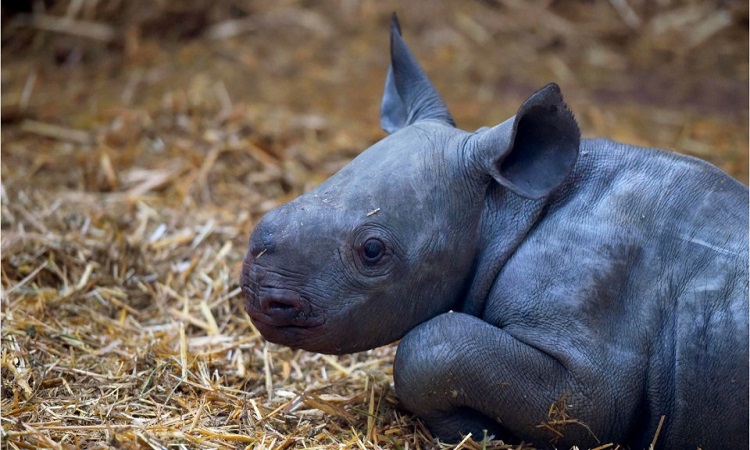Rare black rhino born
A baby black rhino was born at Potter Park Zoo in Lansing, Michigan on December 24. Great news for this still very threatened species.
“He’s a boy!” Said the caretakers in the announcement of his birth. A video stream published on the zoo’s Facebook page allowed us to experience his coming into the world. Since then, more images have been released. We then appreciate a few moments of sharing between the little one and his mother named Doppsee.
For the moment, this baby does not yet have a name, but he is doing well, according to zookeepers, who have known their first birth of black rhino in 100 years. It’s also a first for Doppsee, 12.
This little Christmas miracle is part of a species conservation program set up several years ago by the Association of Zoos & Aquariums. Thanks to these efforts, one or two black rhinos can be born each year in captivity. Remember that the gestation period of these animals is very long – 16 months. After birth, the little one stays with his mother for about 2 years.
“We are dedicated to the conservation of rhinos and cannot be more excited about the successful birth,” said Cynthia Wagner, Director of Potter Park Zoo, in a statement.
The rhino victim of poaching
It is recalled that the species is critically endangered (there are still around 5,000 in the wild) mainly due to poaching which feeds the Asian market.
Although their horn is made up only of keratin, like our hair and nails, some beliefs attribute curative properties against cancer and impotence. The market is juicy; in some countries, rhino horn is indeed more valuable than cocaine, gold or caviar.
While some are taking steps to encourage the birth of these animals, others are also working on the ground to combat poachers. The Save The Rhino Trust, for example, operates in the Kunene and Erongo regions of Namibia (several million hectares).
Their actions are numerous. Members of the association patrol day and night in the most remote areas. They also help move certain specimens to protected areas. Save The Rhino Trust is also working on tourism formats ensuring respect for these animals and is implementing awareness campaigns in schools and high schools across the country to educate young communities.
Finally, training courses to become “trackers” and volunteers are offered free of charge in order to renew the workforce.




